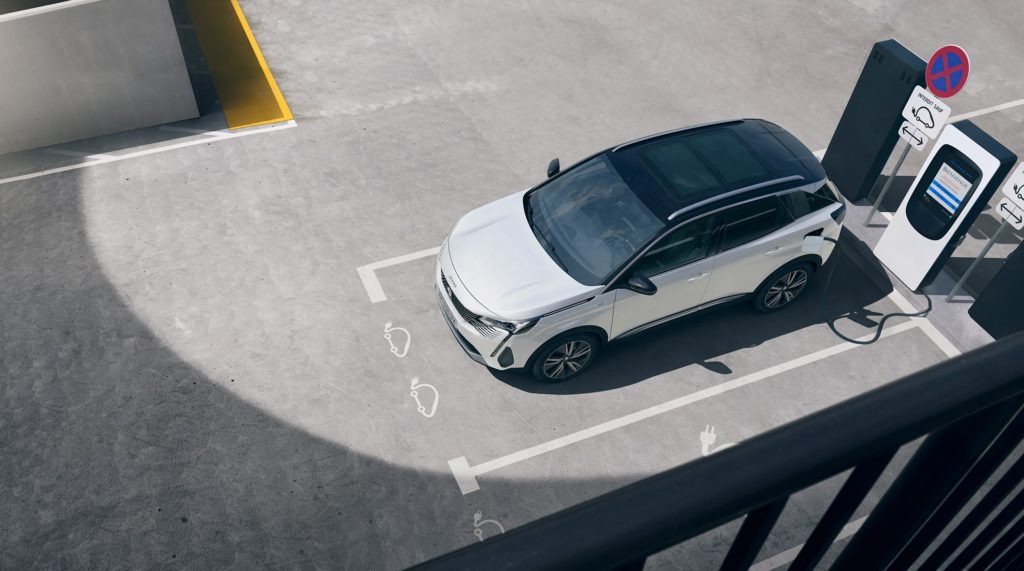Peugeot aims for electrified vehicle line-up by 2023
15 March 2021

The Peugeot brand aims to make its range of passenger cars and light commercial vehicles (LCVs) 100% electrified by 2023.
The brand’s latest electrification push is underpinned by its ′power of choice’ strategy. ′The new generation of electrified cars offers the brand’s customers the possibility of choosing the type of energy that best suits their needs and uses, without sacrificing design, comfort, level of equipment, spaciousness, load capacity or driving pleasure,’ Peugeot explains.
The French carmaker highlights that electrified choices are already a reality for consumers of many of its passenger cars, with models such as the e-208, e-2008, as well as hybrid versions of the 308 and 508. ′They all offer the same cargo space and driver-assistance features as their respective petrol and diesel versions.’
The 2023 timeline for the Peugeot brand is two years earlier than the 2025 target of 100% electrification for the PSA Group as a whole, which was outlined by CEO Carlos Tavares back in 2018. Shortly thereafter, the PSA Group created the ′Low Emissions Vehicles’ business unit and reorganised its powertrain management structure.
e-Commerce drives electrification of LCVs
One of the side effects of the COVID-19 pandemic is an acceleration of e-commerce and the accompanying rise in home deliveries and demand for vans. ‘This has demonstrated the importance of having a fleet of electrified commercial vehicles’ Peugeot said.
Peugeot has launched 100% electric versions of its medium and large-sized vans; the e-Traveller, e-Expert and e-Boxer. Furthermore, the brand recently expanded its electric LCV line-up with a 100% electric version of its small Partner van. Accordingly, the entire range of Peugeot LCVs is now 100% electrified.
Peugeot is a leading player in the LCV market in Europe, which led to the European Commission opening an in-depth investigation into the merger between PSA Group and Fiat Chrysler Automobiles (FCA). The European Commission was concerned that the proposed transaction would reduce competition for LCVs below 3.5 tonnes in the European Economic Area (EEA) and, more specifically, in 14 EU member states and the UK. However, the Commission concluded its anti-competitive investigation into the merger and announced its approval on 21 December 2020. PSA Group and FCA officially completed their merger into new automotive group Stellantis on 16 January 2021.
Last-mile mobility
Peugeot has not commented on stricter emissions targets as the catalyst for its latest electrification plans, but interestingly, identifies social change.
′By 2040, almost 5 billion men and women will live in cities. Making the urban space ″sustainable″ is one of the main challenges of the 21st century, and the aspiration of creating ″sustainable cities″ is shared among all city dwellers. Factors such as air quality, the growth of e-commerce and home delivery, as well as the proliferation of alternative means of transport are changing the face, traffic and way of life in large urban centres,’ the French brand commented.
In addition to its passenger cars and LCVs, Peugeot offers a wide range of electric bicycles, mopeds and scooters. The brand is also represented in car-sharing fleets such as Free2Move and is therefore providing environmentally-friendly solutions to meet ′last-mile’ mobility needs.
′A new template for cities is beginning to take hold in the developed world. It focuses on sustainability, opening up new spaces for pedestrians, bicycles and vehicles powered by alternative energies. It is gradually freeing itself from internal combustion vehicles. Compact cars, SUVs, utility vehicles, bicycles, scooters… all play a role in the electrification strategy,’ Peugeot emphasised.